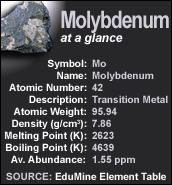Searching for better chemotherapy agents - Radiocapsula RCP/CPR
Submitted on 20 July 2009 - 11:56am
This article is reproduced by CienciaPR with permission from the original source.

Water Soluble Molybdenocene Complexes with both Proliferative and Anti-proliferative Properties on Cancer Cell Lines and Their Binding Interactions to Human Serum Albumin
By: Idainés Feliciano, Jaime Matta and Enrique Meléndez
Two water soluble molybdenocene (molybdenum) compounds containing oxygen groups, maltolato and malonate, have been synthesized and structurally characterized to elucidate the role of the oxygen groups on the molybdenum cytotoxic activity. The cytotoxic activities of molybdenum-malonate and molybdenum-maltolato alone with a molybdenum standard antitumor compound were investigated in colon cancer and breast cancer cell lines. Molybdenum standard antitumor compound (molybdenocene dichloride) is an active antitumor agent against colon, lung and kidney cancer.
The two new compounds, molybdenum-malonate and molybdenum-maltolato, showed slight improvement in terms of cytotoxic activity as compared to a well known molybdenum standard antitumor agent in colon cancer cell line, while for breast cancer all the molybdenum compounds exhibited proliferative profile. The molybdenum compounds containing the oxygen groups showed stronger proliferative effects than molybdenum standard compound on breast cancer. While all molybdenum compounds bind human albumin, a possible transporter of drugs into the cancer cells, there is no correlation between binding affinity of molybdenum compounds to human serum albumin and cytotoxic activity on colon and breast cancer cells.
Full text available at:
http://grad.uprm.edu/tesis/felicianocaraballo.pdf







